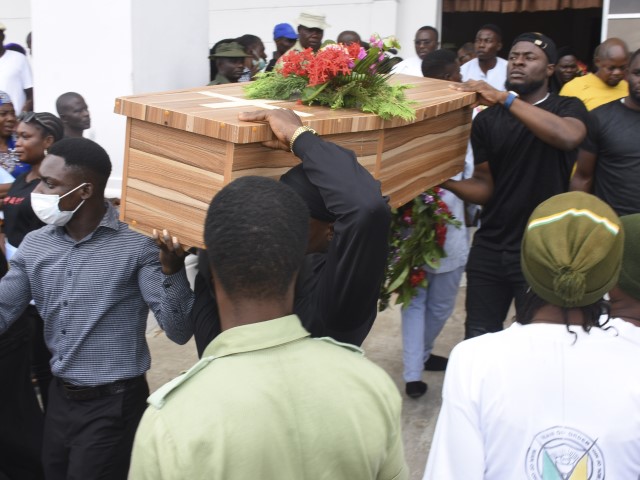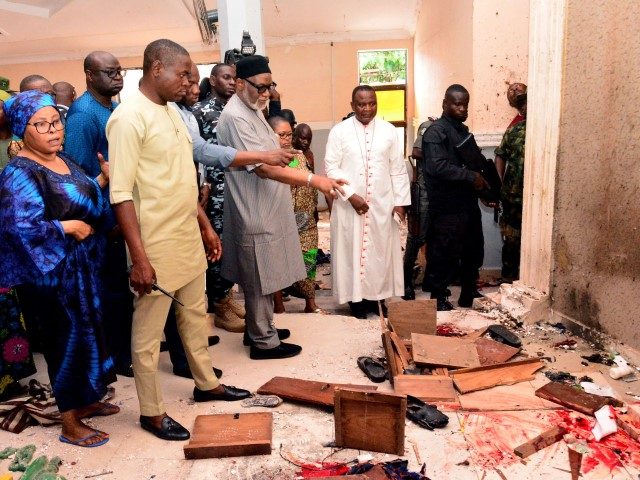Houses of worship across Nigeria, including Christian churches, have hired security services in recent weeks after a Catholic church in southwestern Nigeria suffered a deadly terror attack by suspected members of the Islamic State West African Province (ISWAP) in early June, Voice of America (VOA) reported Tuesday.
“Nigerian churches are introducing armed security and entry searches after a deadly June 5 attack on a Catholic church blamed on the Islamic State in West Africa Province (ISWAP). Security experts fear the attack in Nigeria’s southwest Ondo state means the threat of terrorism is spreading and could soon reach the capital,” VOA reported on June 28.
“Abuja’s police said they have often deployed officers to churches, mosques and public places,” according to the U.S. government-funded broadcaster.
An unknown number of gunmen stormed St. Francis Catholic Church in Ondo State’s Ondo town on June 5. The church was packed with worshippers attending a Sunday morning mass at the time. The terrorists shot at parishioners with AK-47 rifles and detonated an unspecified number of explosives either inside or near the church, Nigeria’s Vanguard newspaper reported.

Mourners carry a coffin of one of the victims killed at the St. Francis Catholic Church on June 5, during a funeral service in Owo, Southwest of Nigeria, Friday, June 17, 2022. (Rahaman A Yusuf/AP)
“[A] total of 127 people had been affected by the attack in the church, of whom 40 had died, 61 were still in hospital and 26 had been discharged,” Reuters reported on June 9 citing remarks by Ondo State Gov. Arakunrin Akeredolu.
Nigeria’s federal government said on June 9 that it suspected members of ISWAP had perpetrated the attack on St. Francis Catholic Church.
“We have been able to see the footprint of ISWAP in the horrendous attack in Owo and we are after them. Our security agencies are on their trail and we will bring them to justice,” Nigerian Interior Minister Ogbeni Rauf Aregbesola told reporters in Nigeria’s federal capital of Abuja.
A jihadist terror group formed under the name Boko Haram has regularly perpetrated terror attacks across Nigeria since its 2009 founding in the country’s northeast. Boko Haram changed its official name to ISWAP in 2015 upon pledging allegiance to the leader of the Islamic State of Iraq and Syria (ISIS) at the time, Abu Bakr al-Baghdadi. Abuja claimed that a dissident offshoot of Boko Haram continued to exist after the organization renamed itself ISWAP in 2015. Nigeria’s federal government then alleged to have vanquished this seemingly fictional offshoot as part of a scheme in which it blames more recent terror attacks on ISWAP, according to the analysis of some observers. Nigerian President Muhammadu Buhari has repeatedly alleged to have “defeated” Boko Haram, though he has yet to provide any proof supporting the claim.

COMMENTS
Please let us know if you're having issues with commenting.